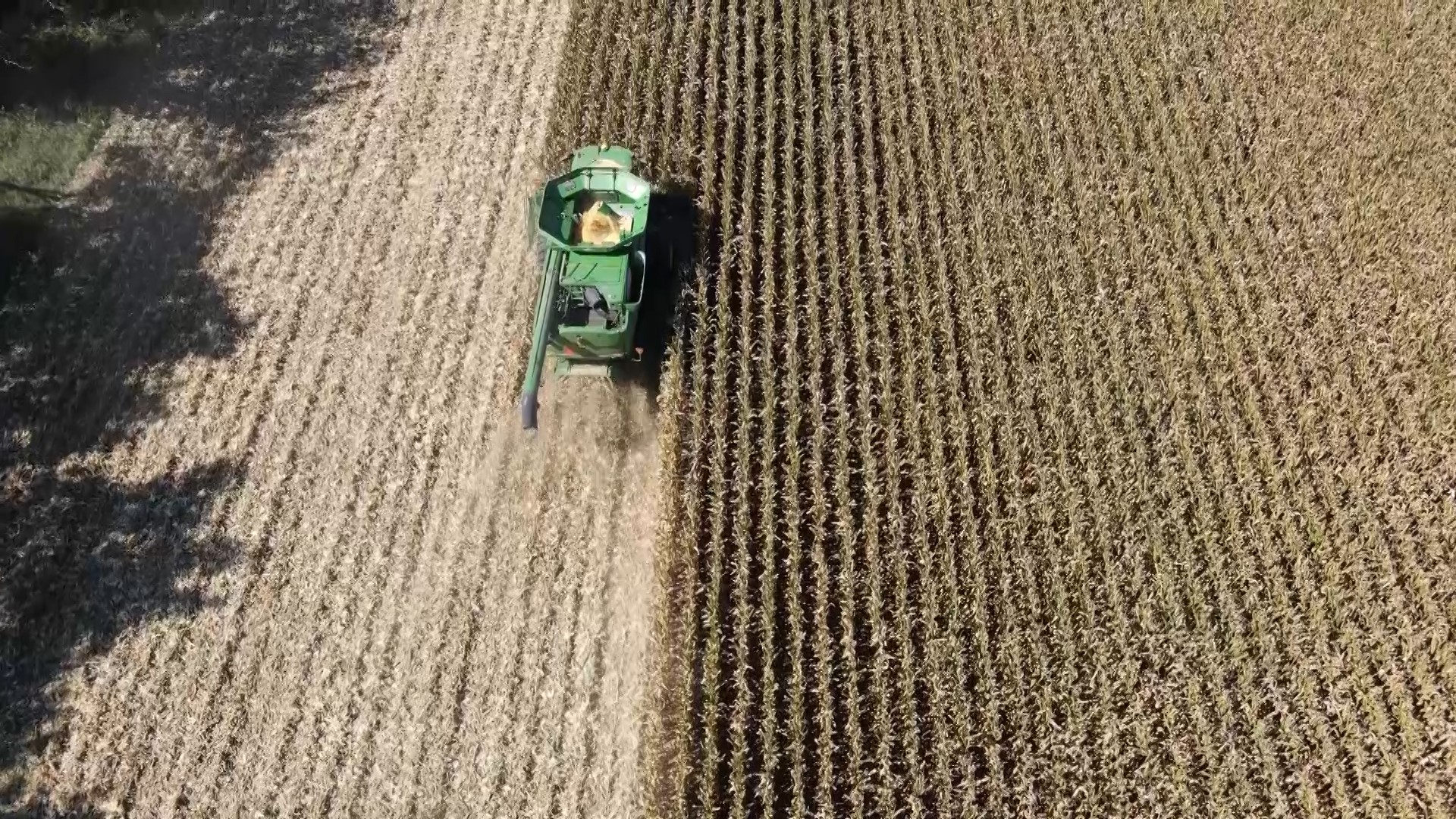DES MOINES, Iowa — The first week of October is here with temperatures in the 70s, and the sun is shining. A great recipe for farmers to get out in the field, though there is one key ingredient missing for a perfect harvest this year: rain.
The National Drought Mitigation Center releases the U.S. Drought Monitor Map once a week. As of now, most of Iowa sits in the abnormally dry range.
Dave Struthers is a soybean farmer in Collins. He says the warmer and drier temperatures have matured his crops faster than normal, putting him and other soybean farmers in a race against time to prevent crop loss.
"We had to get right on it to try to get the soybean grain moisture at the ideal 12-13% moisture harvested, because if they start getting drier than that, they do damage to the seed and and you lose yields," Struthers said.
The historic dry spell in September has the attention of Struthers and Iowa Secretary of Agriculture Mike Naig.
"This spring, we busted that drought, and we had excessive rain in a lot of parts of the state. And then, believe it or not, as we have gotten through the growing season and into September, it now ranks as one of the driest Septembers in our history," Naig told Local 5.
Naig and Struthers acknowledge the possibility of losing crops, though they also have another big concern in dry temperatures posing a risk of field fires.
"It's awfully dry when there's wind, you got lots of machinery out. The possibility of field fires is a real threat, so that can be a hazard," Struthers shared, saying it doesn't take much to spark a fire.
"It's been dry so long, any little spark from a rock hitting a moving part on the combine as you're cutting these beans could start a fire, and would be rather hard to control on some occasions," he said.
Thanks to genetics making the crops more resilient, farmers should be alright this harvest.
"There's no two years the same. Farmers like myself, just do the best we can, and trust the good lord will give us what we need and that we can use the wisdom that we have to make the best decisions with what's available," Struthers said.

